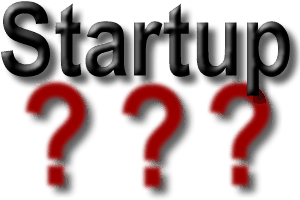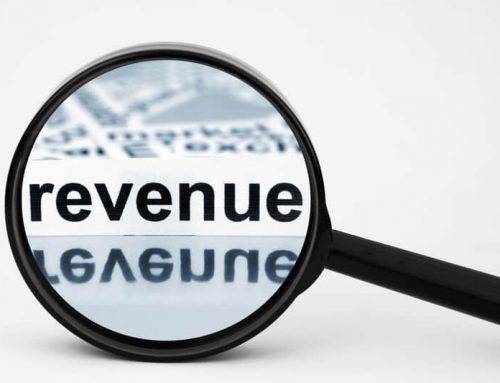 If you’ve been following along on our blog then you are already familiar with the business growth cycle. This week we want to begin looking functionally at what you should be doing within each phase of growth. Because revenue is one of the most critical measures of growth let’s start by looking at sales and selling for startups within the foundation phase specifically.
If you’ve been following along on our blog then you are already familiar with the business growth cycle. This week we want to begin looking functionally at what you should be doing within each phase of growth. Because revenue is one of the most critical measures of growth let’s start by looking at sales and selling for startups within the foundation phase specifically.
You should already know that they goal of the foundation phase is:
Get monthly cash flow to the point of consistent breakeven.
Getting cash flow to breakeven is critical. If you can’t do that, then your business becomes another of the millions that fail in the first 5 years of existence.
Selling for startups is all about mechanics – getting to breakeven as fast as you can. So, you need to understand exactly what it takes to get to breakeven and forget about all the “bells and whistles.” You can look at the sexy side of sales after your business is on solid ground!
Selling for Startups Means-How Many Sales Does It Take to Breakeven?
 The first thing you need to know is how many sales do you need to make to breakeven? It’s just a simple calculation, but you’d be surprised at how many small business owners, even ones that are beyond the foundation stage, even understand that number.
The first thing you need to know is how many sales do you need to make to breakeven? It’s just a simple calculation, but you’d be surprised at how many small business owners, even ones that are beyond the foundation stage, even understand that number.
First, figure out how much money you need to pay all the bills for your business for a month. This includes all the materials and labor for your service or product. Next, divide this by the AVERAGE price for one unit of your product or service.
Monthly Breakeven $ / Average Price per Product/Service = Number of Sales/Month
For example, a handyman needs to bring in $7,000 to pay all his bills, loans, and salary. He bills an average of $350 for a service call. Selling for startup in this case is as follows:
$7,000 / $350 = 20 service calls
Where Will They Come From?
 When selling for startups the next question is to get focused on your target market. Who buys what you sell? Are there more than one group? If so, does one group want something different than the other?
When selling for startups the next question is to get focused on your target market. Who buys what you sell? Are there more than one group? If so, does one group want something different than the other?
The whole point of this step of selling for startups is to begin refining where you will spend your time. Too often startup companies are all over the board trying to be everything to everyone. This is a bad formula. You have limited time and money. So, you need to spend it where it will give you the best payoff.
If we go back to our example, who can he sell his services to?
- Homeowners,
- rental property owners,
- property management companies,
- etc.
He needs 20 sales a month. If he sells to homeowners he needs a lot of homeowners. If he sells to rental property owners each owner has more than 1 property, so he needs less. And, if he finds a handful of property management companies, they could keep him business all month long.
This is a good example of understanding what a target market is. Once you understand this selling for startups is much easier when you select the right target.
How Do You Reach Your Customers?
 Now that you know who you want to speak to, where do they look to buy your type of product or service? Internet, friends, colleagues, store, directories, etc. This tells you where you need to engage with them so that you can get their attention. Part of selling for startups is engaging prospective customers in a conversation. This is really more marketing than sales at this point, but you need to understand where you will find the opportunity to sell so that you can build the appropriate sales & marketing plan.
Now that you know who you want to speak to, where do they look to buy your type of product or service? Internet, friends, colleagues, store, directories, etc. This tells you where you need to engage with them so that you can get their attention. Part of selling for startups is engaging prospective customers in a conversation. This is really more marketing than sales at this point, but you need to understand where you will find the opportunity to sell so that you can build the appropriate sales & marketing plan.
From our previous example, property management companies while the biggest bang for the buck may be too big for him as he gets started. So, he will target rental property owners. He may find these people by talking to realtors or by contacting areas where larger groups of rental properties exist. Again, this approach is much different than trying to find individual homeowners and might require a lot of advertising.
Selling for Startups Means – Do It!
 Selling for startups begins by answering these 3 basic questions. Once you have all the information you can create a solid sales plan. Build a targeted list and begin connecting so you can tell your story and create interest in your product or service. Once you get here you’ll find that sales are well within view!
Selling for startups begins by answering these 3 basic questions. Once you have all the information you can create a solid sales plan. Build a targeted list and begin connecting so you can tell your story and create interest in your product or service. Once you get here you’ll find that sales are well within view!
One reason you want to build your plan this way is because you can document what you did and how you did it. Once you know it works and is creating breakeven consistently you want to pass it on to someone else. This is a sales specific example of what we describe in our eBook The Startup Guide to Small Business Growth and may help you understand how to apply this approach to other aspects of your fledgling business.
Additionally, if you need help determining what to do I recommend taking a look at our online masterclass Tuning Your Revenue Engine. It will help you organize the thing necessary to put your overall plan together.






[…] “3 Critical Sales Questions Every Startup Must Answer.” https://yoursmallbusinessgrowth.com/2012/04/3-critical-sales-questions-every-startup-must-answer/ Posted: April 17th, 2011. Retrieved April 18th, […]
Thank you for the great info. i started my business 4 years ago, and let me tell you if i had this info back then at start up, i wiould be much fearther down the road then i am today.
will implement this sales stragety ASAP….
again thanks
clint
Clinten,
Thanks for the comment and insight. People that have been through it already can be great mentors to those that are currently facing the challenges themselves. Look for opportunities like this to share your story and insight so that others will learn.
Thanks again for your kind words and good luck as you begin to implement your sales strategy!
– Dino Eliadis
[…] the sales function evolves as your business matures through the growth cycle. First we looked at sales in the existence stage and then sales in the survival stage. Now, we want to look at how sales changes in the success […]
Tony Bates has a new post relating the costs of an olnnie Master’s program. From the post: I’ve been doing some analysis recently of the costs of a fully olnnie master’s degree program from a major research university (which for the moment will remain nameless, although this has been a very successful program, both academically and financially). I was doing this for our forthcoming book.